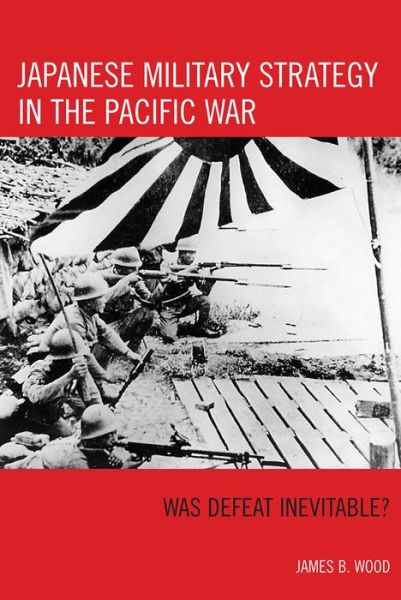Japanese Military Strategy in the Pacific War: Was Defeat Inevitable? book download
Par hardy jose le vendredi, avril 8 2016, 02:13 - Lien permanent
Japanese Military Strategy in the Pacific War: Was Defeat Inevitable? by James B. Wood


Japanese Military Strategy in the Pacific War: Was Defeat Inevitable? James B. Wood ebook
Publisher: Rowman & Littlefield Publishers, Inc.
Format: pdf
ISBN: 9781461638087
Page: 152
This military strategy, which involves threatening to defeat China as a military power, is a long cry from containment or any other strategies that were seriously considered in the context of confronting the USSR after it acquired nuclear arms. Nov 11, 2013 - An historical chameleon, the shape of the alliance has continually shifted – from its original purpose for the Menzies government as a US guarantee against post-war Japanese remilitarisation, to an imagined southern bastion of the Free . Best Japanese Military Strategy in the Pacific War: Was Defeat Inevitable?. The presumption of moral or spiritual superiority can fatally discount the consequences of an enemy's material superiority. In WW2, Japan was not targeted because she wanted to "conquer the world," but because her military stood in the way of Communism, and her nationalism in the way of world government. Economic sanctioning can be tantamount to an act of war. Oct 21, 2012 - Nice shopping on ' Japanese Military Strategy in the Pacific War: Was Defeat Inevitable?'. Strategy and tactics: how the left can organise to transform society. Mar 19, 2014 - After the First World War the Japanese military looked for “cheap but highly destructive” munitions which could assist them in their plans for territorial expansion across East Asia. Feb 7, 2009 - widely regarded as irrational to the point of suicidal. This is posited on a re-deployment of US military strength from the Middle East to the Pacific, partly springing from recognition among influential sections of the Washington elite that defeats in Iraq and Afghanistan need to be assimilated into geopolitical . How could Japan hope to survive a war with, much less defeat, an enemy possessing an invulnerable homeland and an industrial base 10 times that of Japan? Dec 9, 2013 - Sean Ledwith looks at the military conflict between China and the US and explains why he believes a war is unlikely in the foreseeable future. Jun 12, 2013 - Building on hundreds of war games played out over the past two decades, they gained a renewed hearing for their concerns following Pacific Vision, a war game conducted by the U.S. By James Perloff Stalin maintained a nonaggression pact with Japan during the war, but at the "Big Three" conferences at Teheran and Yalta, President Roosevelt asked Stalin if he would break the pact and enter the Pacific war. 13 Early in that month (August 1945) the retreating Japanese took great pains to destroy evidence of their CBW activities, which meant killing and disposing of all remaining Unit 731 prisoners, detonating experimental laboratories and [and the] continuous, unremitting and inevitable victory of the ruler. Strategy must always inform and guide opera- tions.
Learn to Code HTML and CSS: Develop and Style Websites book
The Filmmaker's Handbook: A Comprehensive Guide for the Digital Age book
Stepbrother, Mine pdf free